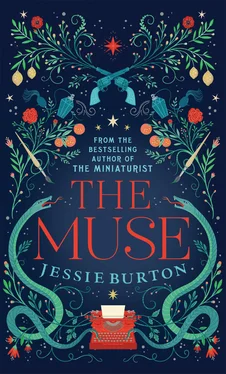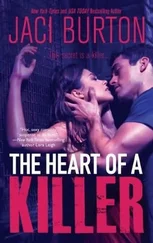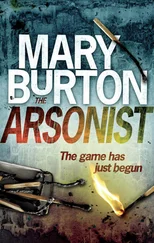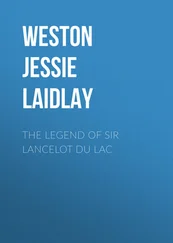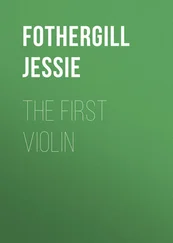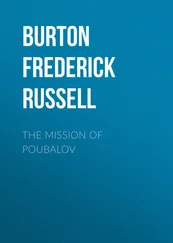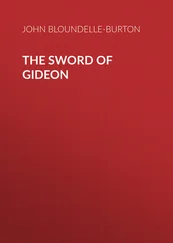I couldn’t disagree with this, so I didn’t try and persuade her otherwise.
‘I’m not well,’ she said. ‘I’m not very well at all.’
It was cancer, she said. Late stage, pancreatic cancer with an inevitable outcome. My own body ached at these words, which was selfish, but entirely predictable. I assumed that the outrageous fact of her cancer had made Quick want someone at home with her — a desire which had possibly surprised her and made her even more brusque. Quick, who had been alone with her secrets for so many years, no longer wished to be alone. Perhaps submitting my story, and therefore making me obliged to her, was a baroque plan to satisfy her simple need for company? When life is running out, such decisions may not seem so invasive or dramatic, and you willingly commit. This was why she spoke to Edmund Reede with no fear of reprisal; she knew she was soon to be reprised entirely.
I do think, looking back, that Quick perhaps regarded me as the child she never had, as someone who would perpetuate her essence after death. She told me at our first meeting that I reminded her of someone she once knew. I suspect that person was the closest companion she ever had. I’ll never be sure of this, and she never mentioned a name, but her expression when she said those words makes me think that it was so. She looked at me tenderly, mingled with terror, as if to come too close would lose whatever she’d lost all over again.
Sitting in that overheated front room, I realized quite how thin she was, how tired. And although I probably thought it unfair that someone should suffer something like that alone, I don’t imagine I cried. Quick was not someone you would sob in front of unless you absolutely had to, and when it was a question of her own pain and loss, you might feel a monstrous booby to cry when she herself was dry-eyed, dragging on the cigarettes that were helping to kill her. She was a curio, out of her time, not given to standard emotion — and in her presence, you did what Quick did.
‘Well, say something,’ she said.
‘Does Mr Reede know?’ I asked.
Quick snorted. ‘God, no. And he’s not to.’
‘Does anyone else know?’
‘No one else, but don’t worry, I haven’t told you because I want you to be my nursemaid.’
‘Why have you told me?’
Quick reached for the brandy bottle and refilled her glass. ‘Do you know, I got my diagnosis the day you started at the Skelton?’
‘Goodness me,’ I said. I remembered Quick coming up to my desk that first day; her flushed face, the way she batted away the porter’s questions over her absence from work.
‘Indeed,’ she said. ‘A day of ups and downs. Death imminent, followed by Odelle Bastien.’
‘I can’t imagine I was much of a tonic.’
She lit a cigarette, the last of the packet. ‘You have no idea.’
I couldn’t help wondering how long she had left, but I didn’t want to ask if she knew, nor enquire about medications, or anything practical. It seemed too brutal, as if I was asking about her expiration date. She was still here, still vital, still mercurial.
In the silence between us, I reached into my handbag and handed over the art gallery pamphlet. I still wonder why I did it, even though it felt like a betrayal of Lawrie. I think it was the pride I felt, from knowing that Quick had confided in me. It was my consolation offering in return, even though I didn’t know if it was something she’d find useful.
She took it, almost as if she was expecting it. ‘This was in Lawrie’s house,’ she said.
‘How on earth did you know?’
‘You’ve been looking like you wanted to tell me something since the moment I mentioned your visit there.’
‘I didn’t know I was so obvious,’ I said.
She smiled. ‘You’re not that obvious. I’ve had lots of practice.’ She opened the pamphlet and placed it gently on her knees, her finger tracing the pencilled message, No Sign .. ‘Was there anything else with it?’ she asked.
‘No. Just odds and ends on a windowsill. Butcher’s bills, church service sheets.’
‘Church service sheets?’ she repeated, her eyebrow raised.
‘A carol concert, actually.’
‘I see.’
‘What do you think it means — where someone’s written No Sign .? The name of a painting?’
‘I imagine it’s simpler than that. Someone was looking for something, and they didn’t find it.’
‘You know what they were looking for, don’t you, Quick?’
She looked up at me, the electric fire turning her irises hazel. ‘I do?’
‘Well,’ I said. ‘It’s just — you’re very interested in Lawrie’s mother. And Lawrie’s painting.’
‘“Interested” is not the word I would use.’
Obsessed? Frightened? I thought. As if I would say those words to you . ‘Well,’ I faltered, sensing her stiffen, ‘you seem averse to the idea of exhibiting it.’
‘I’m not averse to the exhibition of that painting. I think everybody should see it.’
‘All right,’ I said. ‘But that’s not what you said last time. You said Lawrie should take it home.’
She took in a deep breath. ‘Well. I’m not entirely happy with how Reede is planning to use it. Until we get more information from the Guggenheim institution, my doubts remain.’
‘What doubts are those?’
Quick’s face took on a haunted expression. I’d seen it before, through the keyhole at the Skelton, when Lawrie had returned to continue his discussions with Reede. Her eyes darted back and forth on the rug between us. She kept breathing in as if to speak, and not speaking. It was frustrating, but I knew that to speak myself might ruin the slim chance she would finally say something.
‘Isaac Robles didn’t paint that picture, Odelle,’ Quick said, her fingers tightening on the pamphlet.
My heart began to thump harder. ‘But he’s standing in front of it, in that photograph.’
‘So? I could go and stand in front of any number of artworks and be photographed. It doesn’t mean I made them.’
‘It was taken in his studio—’
‘Odelle, it’s not that I don’t believe he painted it. I know he didn’t.’
Her last four words sang through the air between us, and hit me in the stomach. Something shivered over me, and my skin turned to gooseflesh, the way it does when someone tells you the truth and you hear it with your body.
I must have looked dumb. ‘He didn’t paint it, Odelle,’ she repeated. Her shoulders sagged. ‘It wasn’t him.’
‘Then — who was it?’
My question ruined everything. Quick looked stricken, aged, weird. Looking at her, I felt a bit sick and scared myself, because she seemed terrified. ‘Are you all right?’ I said. ‘Should I call a doctor?’
‘No. It’s late. I’m fine.’ But I could hear that she was out of breath. ‘You should call a taxi. I have a number, out in the hallway. Don’t worry, I’ll pay.’
I rose, stumbling over the threshold of the front room into the cool darkness of the hall, where I switched on the light standing on the telephone table. There was no number to be seen. The house behind me was silent. I sensed a presence in the shadows, and my back prickled. I turned around and something was on the stairs, moving towards me. I gripped the edge of the table, as Quick’s cat emerged into the pool of yellow light, and sat very still before me, turning his green eyes. We regarded one another, only the faintest movement from his ribs dissuading me that he was stuffed.
‘Look in the drawer,’ Quick called in a ragged voice, and I jumped. ‘There’s an address book in the drawer. T for Taxi.’ I turned back to the lamplight, feeling foolish, praying that nothing else was waiting for me in the shadows beyond the cat.
Читать дальше
